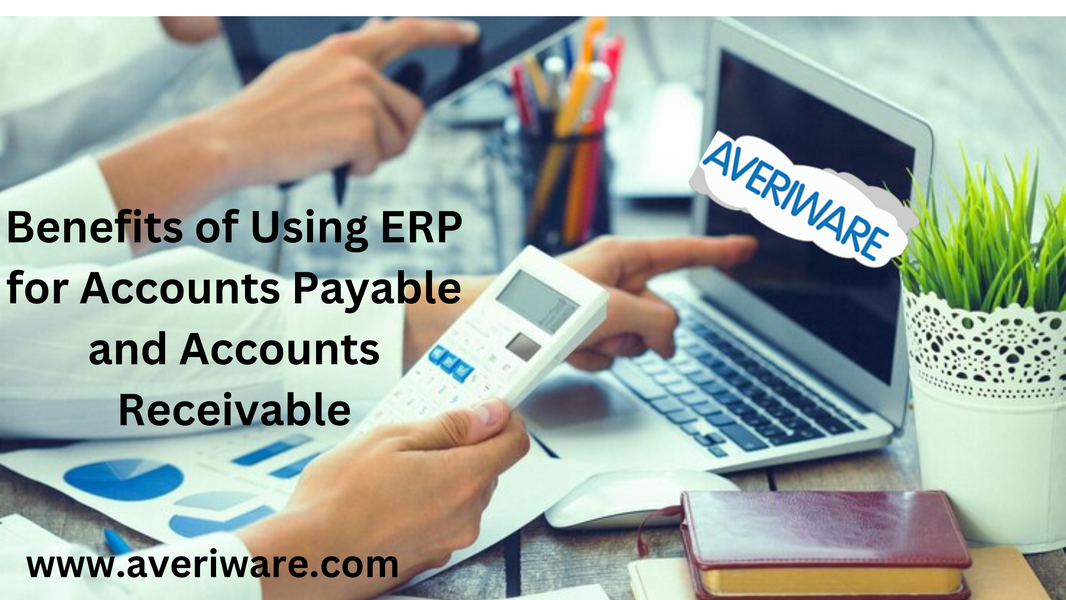FAQ About ERP Accounts payable and receivable Process
The Benefits of Using ERP for Accounts Payable and Accounts Receivable
Managing finances efficiently is essential for small businesses to stay organized and grow. Adopting an ERP system helps streamline key financial tasks like accounts payable (AP) and accounts receivable (AR). By automating these processes, small businesses can save time, minimize errors, and improve cash flow management. In this blog, we’ll discuss how ERP software supports AP and AR functions, making financial management smoother and more effective for small businesses.
Streamlined Accounts Payable Process
An ERP system simplifies the accounts payable process by automating tasks that otherwise require significant manual effort. With ERP Accounts Payable software, businesses can easily track, manage, and control payments to vendors. This leads to fewer errors and quicker processing times.
A key feature of Averiware’s ERP Accounts Payable module is the availability of user-defined aging parameters. This allows businesses to customize how overdue payments are categorized, ensuring that the aging of invoices reflects their specific financial processes. With multiple accounts payable control accounts, businesses have flexibility in managing various vendor relationships, improving the accuracy of payments.
Additionally, the system can hold payments or even suspend purchase orders if there are issues such as disputes or credit limits. This level of control enables better cash flow management and reduces the risk of unauthorized or unnecessary payments.
Averiware also supports prepayments without requiring vendor invoices. This feature ensures businesses can make advance payments and track them without the need for a formal invoice, improving cash flow management and vendor relationships.
Enhanced Accounts Receivable Management
ERP systems don’t just benefit accounts payable. They also improve the efficiency of accounts receivable (AR) processes. For instance, ERP solutions automate returned check processing and calculate freight charges automatically, which reduces the time and effort required for manual calculations.
Averiware ERP also allows for the processing of advance payments and ensures they are automatically applied when the invoice is generated. This automation eliminates the need for manual reconciliation, reducing errors and speeding up payment processes.
Ability to use multiple General Ledger control accounts within the accounts receivable system. This enables more organized and detailed tracking of receivables, giving businesses a clearer picture of their outstanding payments.
Cost Savings and Improved Accuracy
One of the advantages of using Accounts Payable ERP Software is the cost savings it brings. By automating manual tasks, businesses can reduce labor costs and eliminate human error, which often leads to costly financial mistakes. For example, ERP systems can quickly generate reports and identify errors or discrepancies in payments and receivables, reducing the risk of financial losses.
The use of prepayment tracking and the ability to automate invoice applications ensures that the financial records are always accurate. This leads to smoother audits and compliance with financial regulations.
In conclusion, adopting an ERP system for managing Accounts Payable and Accounts Receivable delivers numerous benefits. The advantages are significant from streamlining payments and automating manual tasks to reducing errors and improving cash flow. With Averiware’s features like user-defined aging parameters, prepayment tracking, and automated freight charge calculations, businesses can manage their financial operations more efficiently.
By integrating an ERP solution into your financial processes, you can save time, reduce costs, and improve accuracy—ensuring that your business remains financially stable and competitive.

